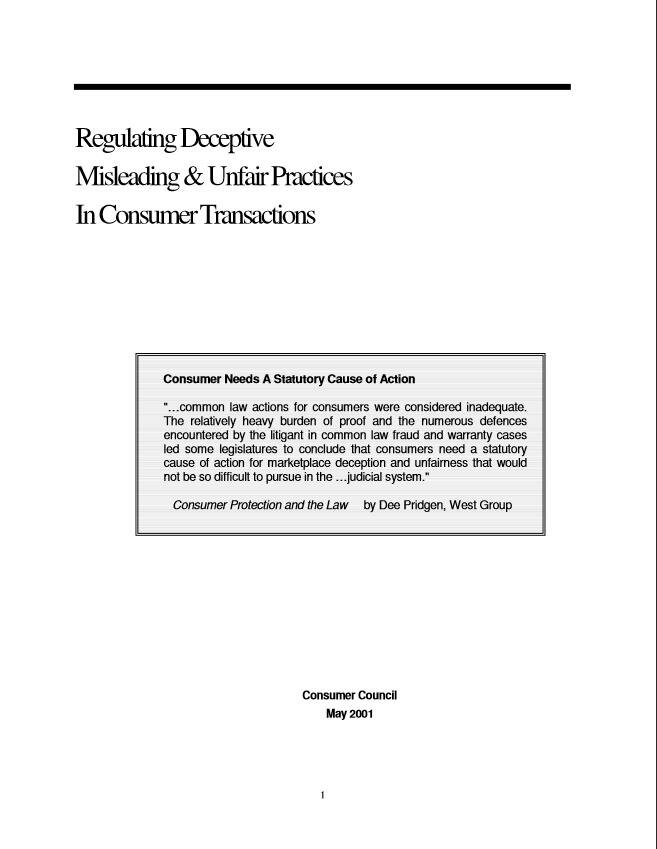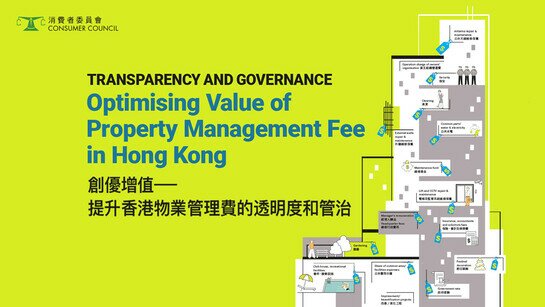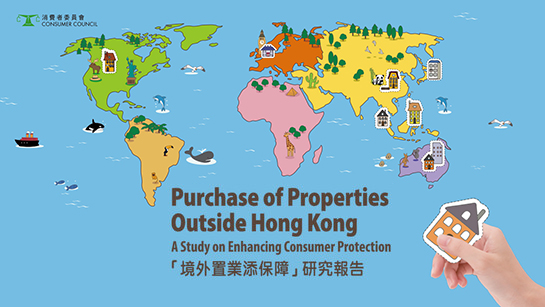
Summary
The issue
- In consumer transactions, deceptive, misleading and unfair practices of some traders have tainted Hong Kong's image. Such malpractices are against consumer interests and may coerce competitors adopting similar tactics in order to remain in business, thus giving rise to demands for more effective measures to curb such malpractices.
- In August 1999, the Consumer Council issued a Consultation Paper, namely the Ways to Improve the Regulation of Advertising . In the course of the consultation, it transpired that the Council needed to examine the adequacy of legal sanction against deceptive, misleading and unfair practices in consumer transaction in greater details.
- This report examines the ways and means to regulate deceptive, misleading and unfair practices in consumer transactions. The issue of misleading advertising will be covered in a separate report.
Nature of Deceptive, Misleading & Unfair Practices
- For the purpose of identifying the prevalence of deceptive, misleading and unfair practices by businesses in Hong Kong, we have analysed 4,547 complaints cases received by the Consumer Council in the last quarter of 2000 as against the total of 18,932 cases in the year. From the analysis, we found that a substantial number of the complaints had indicated sharp practices that would be prima facie actionable under the trade practices laws in Australia, U.K. and the USA, if they were enacted in Hong Kong. The major sharp practices are of the following nature:
- Misleading indication as to price (21%)*;
- False or misleading representation (16%)*;
- Accepting payment without intention to supply (8%)*;
- Bait and switch [1] (6%)*; and
- Undue harassment or coercion (1%)*
*% of complaints cases of the last quarter of 2000
- The complaints were mainly related to the following categories of products and services:
- Electrical Appliances
- Audio & Visual Goods
- Medicines including Chinese Herbal Medicines
- Beauty Parlour services
- Modelling/Talent Hunt
- Time Sharing holiday facilities
- It is important to note that 70% of the complaints relate to supply of services. Those relate to sale of goods constitute 30% only.
Deficiencies of the Existing Consumer Protection Law
- In the past 26 years, since the establishment of the Consumer Council in 1974, there were significant developments in consumer protection law in the area of sales of goods and product safety. Development in the law curbing deceptive and unfair practices is still lagging behind.
- The prevalence of deceptive and unfair sale practices has raised much public concern. Inadequacies of existing laws in providing safeguards against misleading price indication, sales misrepresentation, deceptive sale techniques are deeply rooted in the way such laws are being constructed.
- First, most consumers injured by the unfair or deceptive trade practices of a seller will find it onerous having to plead and prove a common law action for fraud. Further, most criminal laws dealing with dishonest conducts, including sales abuses, require that the seller be shown to have an evil intent and that the consumer to prove justifiable or material reliance on the deceptive representation.
Deceptive and Unfair Conducts
- Deceptive and unfair trade practices have been the subject of many consumer complaints in Hong Kong. The sellers concerned have not only seriously harmed the interest of the local consumer but also severely damaged Hong Kong's reputation as a shopping paradise for tourists.
- Consumers in Hong Kong generally have to rely on the statutory provisions of the Theft Ordinance (Cap.210) or that concern with conspiracy to defraud in the common law to protect their interests against deceptive & misleading conducts and unfair practices of businesses. Yet, these provisions cannot give adequate protection to consumers.
- This is mainly due to the fact that there is a relatively heavy burden of proof of dishonesty or intent to defraud. In most cases, extensive investigations have to be carried out in order to gather evidence. Further, the Ordinance is hardly able to catch such conducts as high pressure coercive sales methods and failure to disclose material information in respect of goods or services.
- Consumer protection laws in Australia, UK and USA have made specific provisions to prohibit and sanction against such unfair & deceptive conducts as "bait & switch", "failing to supply after accepting payments" and "harassment & coercion" exercised by traders. The more important element of these laws is that a seller is obliged to have reasonable grounds to believe that he will be able to supply the goods or services as advertised.
- We understand the Hong Kong Police force has been taking action diligently against those delinquent retailers whose conducts harm the interests of consumers, particularly tourists. However, such operations are rather manpower intensive and will demand substantial resources if conducted on a frequent basis.
- We believe that it is appropriate to create new statutory criminal offences under the Summary Offences Ordinance (Cap.228) to deter "bait & switch" tactics and the related conducts of the delinquent retailers. Reference can be made to the trade practices laws of other jurisdictions obliging the seller to have reasonable grounds for believing that he will be able to supply the goods or services as advertised. This is because such information is only privy to the trader and it is impossible to expect the consumer to come up with such proof. The creation of such criminal offences will facilitate the consumer's access to justice and enable the police to act more effectively in their operations.
- The Unconscionable Contracts Ordinance (Cap.458) has provisions to protect consumer interests. The purpose of the Ordinance is "to empower courts to give relief in certain contracts found to be unconscionable". However, it does not have the effect, as in the Australian Act, of prohibiting the trader from engaging in unconscionable conducts against the consumer. Further, the Ordinance requires the consumer "claiming that a contract or part of a contract is unconscionable to prove that it is". The time and costs incurred in pursuing such a case by the consumer often inhibit him to rely on this law to seek relief and remedy.
- To enhance protection in consumer transactions, we are of the view that the Unconscionable Contracts Ordinance (Cap.458) should be amended to provide sanctions against unconscionable conducts, including bait & switch and the related conducts of a seller. Further, for the purpose of enhancing the effectiveness of the Ordinance, we consider it necessary for the Government to designate a public agency or agencies to take action.
False & Misleading Representation
- To rely on civil action in misrepresentation to deal with false or misleading sales information of the trader is unsatisfactory. Such action requires proof of, among other things, a justifiable or material reliance by the aggrieved consumer on the misrepresentation to enter into the purchase. In many instances, it may not be easily held that the consumer to has materially relied on the representation of the seller.
- The Trade Descriptions Ordinance (Cap. 362) protects the consumer against the supply of goods with false or misleading "trade descriptions". The major deficiency of the Ordinance is that it applies to goods but NOT to services, accommodation and facilities. As Hong Kong is moving towards a service economy, expanding the scope of coverage of this Ordinance is necessary.
- Under the Section 6(2) of the Ordinance, "an oral statement may amount to the use of a trade description". The effect of this Section is that a trader can be convicted of the offence of application of a false trade description if he has told a potential customer something false or misleading in respect of any of the specified matters under the Ordinance. However, it seems that the Trade Descriptions Ordinance (Cap.362) is seldom used to pursue false or misleading misrepresentation made in connection with the supply of goods in consumer transaction.
- The trade practices legislation in other jurisdictions contains specific provisions prohibiting misleading representations and representations likely to mislead in trade in connection with the supply of goods or services. A unique characteristic of this type of law is that where a seller makes a representation with respect to any future matter and the seller does not have reasonable grounds for making the representation, the representation shall be taken to be misleading.
- We believe that there is a need for the Government to conduct a review on the effectiveness of the Trade Descriptions Ordinance (Cap.362) in curbing false or misleading representations made by traders in the course of consumer transactions. The more urgent need is to extend the Trade Descriptions Ordinance (Cap.362) to cover services, accommodation and facilities.
Misleading Indication as to Price
- A competitive market depends upon consumers being able to obtain accurate information on price and easily compare prices from different outlets. Price indication legislation can do much to assist fair competition. The availability of clear price information is important in facilitating choice and making the market more transparent for consumers.
- Thus, most jurisdictions have specific legislation to regulate price indication relating to the supplies of goods and services to consumers. The legislation is usually enforced by a public authority in order to ensure its effectiveness, as it is unrealistic to rely on an aggrieved consumer to seek redress through civil action against a trader who has provided misleading price indication on the goods and services offered.
- The best example is found in the Consumer Protection Act 1987 of the United Kingdom. The Act makes it an offence to give consumers a misleading price indication about goods, services, accommodation or facilities. The Act gives the authority power to approve codes of practice to give practical guidance to traders on price indication. In a court proceeding, the court can take into account whether or not one has followed the approved codes.
- The UK Code of Practice for Traders on Price Indications is addressed to traders and sets out in great details what is good practice to follow in giving price indications in a wide range of different circumstances so as to avoid misleading price indications.
- In Hong Kong, we can only find very little provisions dealing with prices or price indication under the existing law. The Trade Descriptions Ordinance (Cap.362) prohibits false or misleading trade descriptions such as indications regarding quantity, method of manufacture, physical characteristics, place of manufacture, etc. It does not apply to misleading price indication.
- We believe that Hong Kong is badly in need of statutory laws to improve the provision information on prices of goods and services to consumers. With specific statutory provisions prohibiting misleading price indications, malpractice of certain seafood and ginseng shops and other retail shops in the tourist districts could be curbed effectively.
- To achieve the purpose, it is necessary for the Government to extend the definition of "false trade description" under the Trade Descriptions Ordinance (Cap.362) to cover misleading indications to the price of goods, services, accommodation and facilities. Further, it may be necessary for the Government to invoke the power under this Ordinance to make Price Marking Orders for designated trades which should carry accurate price indications.
Comprehensive Trade Practices Legislation
- Consumers in Hong Kong are protected by various statutes which address specific issues of concern that have arisen over time. Such a piecemeal approach in protecting consumers and in particular, in dealing with misleading advertising and deceptive & unfair business conduct is no longer sufficient for to-day's market. Many other jurisdictions have adopted a more proficient approach of enacting a single piece of comprehensive trade practices legislation.
- In the USA, the Federal Trade Commission Act 1970 declares that unfair methods of competition in or affecting commerce, and unfair or deceptive acts or practices in or affecting commerce are unlawful. The law also prohibits certain specified 'unfair' and 'deceptive' practices.
- In Australia, the Trade Practices Act 1974 contains, first, general prohibitions against misleading or deceptive conduct in trade or commerce and secondly, a long list of more specific prohibited practice. Under the UK Fair Trading Act 1973 , the Director General of Fair Trading has the power to intervene if a trader has persisted in conducting business in a way detrimental to consumer interests (whether economic, health, safety or other interests) and unfair to consumers.
- In enacting these statutory laws, the legislatures in all these jurisdictions believed that consumers need a statutory cause of action for marketplace deception and unfairness. They also believed that it was necessary to make relevant provisions in the statutory laws with a view to enabling the enforcement authorities to pursue such cause of action more easily in the judicial system.
- There are obvious advantages of dealing with all misleading advertising and deceptive and unfair conducts of the delinquent trader under a single piece of comprehensive trade practices legislation. The regulatory function over sharp trade practices, including misleading advertising, can be more efficient and cost effective as they will be dealt with under one roof. Further, the provisions of the law serve the purpose of providing comprehensive guidelines for people in the trade.
- We believe that the Government should reform the current consumer protection laws with the view of curbing deceptive, misleading and unfair conducts that are prevalent in the Hong Kong marketplace. At the same time, we believe that the government should, as a long term goal, consider the feasibility of incorporating all relevant laws into one single piece of trade practices legislation and adding new provisions where necessary.
Enforcement and Remedies
- The consumer protection provisions contained in the laws against trade malpractice in other jurisdictions are all enforced by designated public administrative agencies. Those agencies have the power to investigate a suspected violation of the prohibitions specified in the laws before proceeding with formal legal action.
- A unique characteristic of these unfair or deceptive laws is that they all provide a variety of enforcement measures and legal remedies, including criminal & civil penalties, cease and desist order, declaration, injunctions; corporate undertaking & compliance programme; advertising and public statement to warn the public against the malpractice.
- Most statutes have specified a maximum civil pecuniary penalty for each violation of either an order or the statute itself. Criminal penalty is generally reserved for the most outrageous frauds or as an effective approach against companies or individuals who repeatedly violate the law but have little or no assets for restitution.
- Some jurisdictions found it necessary for court orders to be obtained to prevent businesses from engaging in conduct detrimental to consumers. These may include cease & desist order, declaration or injunction. The purpose is to restrain breaches of "misleading or deceptive conduct".
- In dealing with unfair and deceptive trade practices, the enforcement agencies generally have the option of accepting voluntary assurance or undertaking of compliance from businesses as out of court resolutions. Such measure is favoured by both the enforcement agencies as well as the business sector.
- The Court has power to accept undertaking that a compliance programme will be instituted. Where such undertaking has been breached, the enforcement authority can take the trader to court to be committed for contempt.
Consumer Redress
- For any consumer protection law, the ability of the enforcement authority to obtain monetary redress for individual consumers who have been victimized by unfair or deceptive trade practices is a very powerful remedy. The possibility of a consumer redress order is a stronger deterrent than the simple cease and desist order or injunction against future violations, because it results in direct monetary loss to the defendant rather than simply a warning.
- In the US, many state consumer protection statutes expressly provide that the state enforcement authority may seek restitution for consumer victims of unfair or deceptive trade practices. The authority can sometimes incorporate into its cease and desist orders, restitution to compensate those injured by an offender.
- In Australia, ACCC is empowered to make an application court order on behalf of one or more persons identified in the application who have suffered, or are likely to suffer loss or damages by the unfair and deceptive conducts engaged by traders. The Court may make such orders as it think appropriate against traders engaging in unfair and deceptive conducts.
Recommendations
Immediate Measures
- We recommend that the Government should take immediate action to strengthen the provisions contained in:
(1) the Trade Descriptions Ordinance (Cap.362) ,
(2) the Summary Offences Ordinance (Cap.228) , and
(3) the Unconscionable Contracts Ordinance (Cap.458)
for the purpose of imposing sanctions against deceptive, misleading and unfair trade practices. Details are as follows:
- EXTENDING THE SCOPE OF THE TRADE DESCRIPTIONS ORDINANCE (CAP. 362)
(1) We recommend that the scope of the Ordinance should be extended to cover false or misleading trade descriptions of services, accommodation and facilities (such as those related to resort houses on rental and not the usual transactions of property in the market).
(2) We recommend that the definition of "false trade description" under the Ordinance should be extended to cover misleading indications as to the price of goods, services, accommodation and facilities.
(3) We also recommend that the amended Ordinance should enable the enforcement authority to prescribe codes of practice on price indication in order to give guidance on the compliance of the statutory provisions.
(4) We recommend that the Government should conduct a review on the effectiveness of the Ordinance in curbing false and misleading representations made in the course of a consumer transaction. Particular attention should be given to examine the enforcement of the offence of application of false trade descriptions by means of oral statement and possible legislative improvement for better consumer protection in such cases.
- CREATING SUMMARY OFFENCES AGAINST SPECIFIC TRADE MALPRACTICE
(1) We recommend the introduction of new criminal sanctions, under the he Summary Offences Ordinance (Cap.228) , against traders for -
(a) enticing customers by bait & switch tactics,
(b) accepting payment for goods or services which they do not intend to or are not able to supply, and
(c) using "physical force" or "undue harassment or coercion" against a consumer relating to the supply of or payment for goods or services.
(2) We also recommend that the law should oblige the seller to have reasonable grounds for believing that he will be able to supply the goods or services in the manner as advertised. In this connection, we also recommend the Government to consider the desirability of introducing a presumption in favour of consumers.
(3) We also recommend that the Court, in addition to imposing criminal penalties under the above mentioned provisions in the Summary Offences Ordinance (Cap.228) , would be specifically empowered to make orders e.g. compensation order, restitution order, repair order etc. to provide for consumer redress.
- SPECIFYING UNCONSCIONABLE TRADE PRACTICES
(1) We recommend that the Unconscionable Contracts Ordinance (Cap.458) should include -
(a) "Bait & switch" [1] sales technique, and
(b) misleading representation or representation likely to mislead in respect to the price of goods or services in the list of matters that the court may take into consideration in determining whether a contract is unconscionable in the circumstances.
(2) We also recommend that, in addition to the private right of action of the injured consumer, designated public agencies should be empowered to commence civil action on behalf of the injured consumer against the unethical trader under the Ordinance.
Long Term Measure
- We recommend that the Government should enact a piece of comprehensive trade practice legislation incorporating relevant laws into it and adding new provisions where necessary
(1) Prohibition against traders from engaging in, inter alia , deceptive, misleading, unfair and oppressive conducts in the course of consumer transaction should be provided.
(2) Breaches of the prohibited trade practices should incur strict liability and lead to both criminal and civil penalties. The penalties may include pecuniary fines in order to deprive the delinquent trader of the profits of the unlawful activity. The penalties should also include of imprisonment for persistent offenders.
(3) The law should provide a fair and adequate consumer redress mechanism for the injured consumers, and this may, for example, take the form of monetary compensation, repair order or restitution order.
(4) The proposed legislation should be enforced by a public agency.
(5) The enforcement agency should be empowered, inter alia , to institute court proceedings against offenders by seeking court orders for declarations, injunctions, specific performance, damages, etc.
(6) The enforcement agency should be empowered to pursue voluntary assurance or undertaking of compliance from traders who have engaged in unfair and deceptive practices and to enforce the undertaking if breached.
(7) It should also be empowered to order publication of correction notices or institution of corporate compliance programmes.
(8) The enforcement agency should be empowered to prescribe codes of practices for the conduct of business in specific business sectors.
- Advantages of enacting a single piece of trade practices legislation are elaborated in para. 34 of the report.
Remarks:
1. As distinct from incentive or bonus schemes to promote sales. In Australia, bait-and-switch tactics are defined as "the trader advertises and/or promotes the sales of his goods or services when there is no reasonable ground to believe that he is able to offer goods or services at the advertised/promoted price for a reasonable period and at a reasonable quantity."











